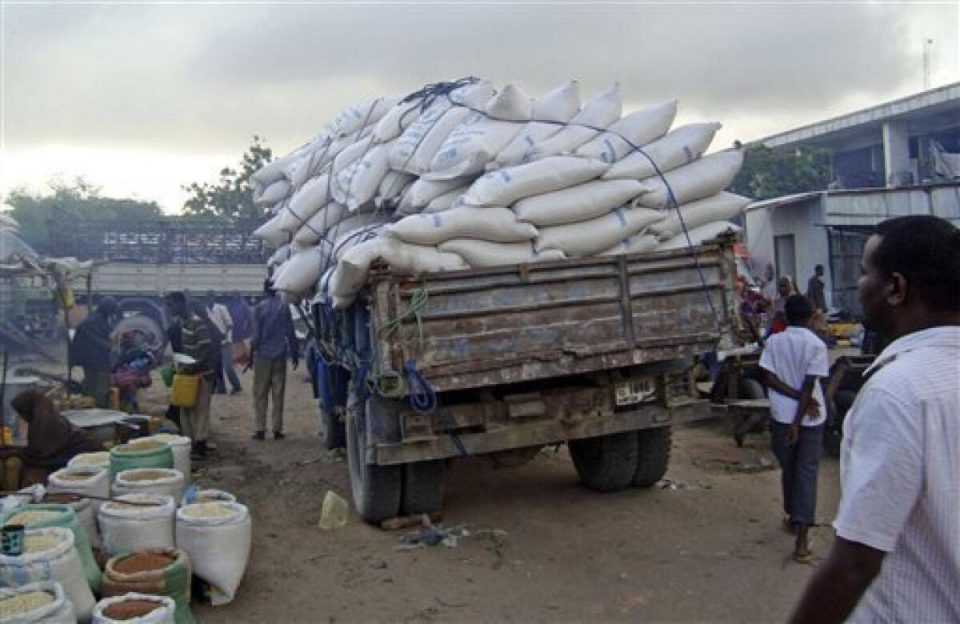These Somalis were promised $130 per month when they reached the Muri camp in the capital Mogadishu, after fleeing hunger and conflict in the countryside.
But they learnt there was a catch.
This mother of six is from central Somalia.
“There is also a cash program in which your fingerprints and photos are taken then you wait for about two months. Then they say, come the photos have come. We are called out and told there is $130 in your sim card. You are told this is your money take it. After the aid agency that brought the money leaves, the chairman of the camp asks for the sim cards or e-voucher cards. This is done to everyone.”
She is one of the two affected beneficiaries who spoke to Reuters.
Both beneficiaries spoke on condition of anonymity for fear of reprisals.
They said camp managers stole food aid deliveries when they arrived, offering $4 as compensation.
The chairman of the camp, Mohamed Ahmed, denied the allegations.
“There are no IDPS who are asked to sit on sacks and then denied the food. That is fabricated story. They are given cards and easily retrieve their money and buy with it what they need. Nobody goes after IDPs, nobody takes money and food from IDPs.”
Alleged schemes similar to this one were found in a confidential U.N. report.
Its findings suggest the theft of aid in Somalia is quote “widespread and systemic.”
In response to the report, the European Union’s executive said on Tuesday that disbursements of humanitarian aid in Somalia were “temporarily suspended”.
Aid Theft Is A daily Occurrence in Somalia
Aid deliveries to the country has been dogged by corruption for decades.
But the investigation underscores how stubborn the problem remains despite what humanitarian officials have touted as far-reaching efforts to tackle it.
The report says investigators found aid diversion at all of the 55 Internally Displaced Person sites in Somalia where they collected data.
In a statement on Monday, the Western-backed Somali government said it was committed to investigating the report’s findings, while adding that current aid delivery systems operate “outside of government channels”.
The WFP and U.N. Secretary-General Antonio Guterres’ office did not respond to Reuters requests for comment.
Reuters

